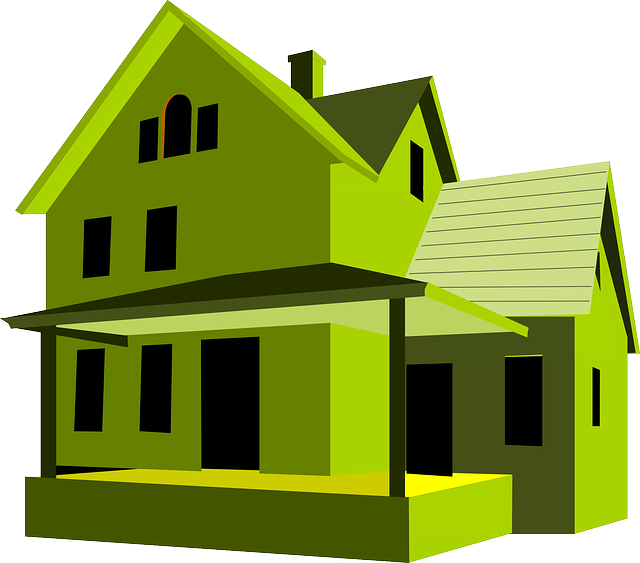Homeowners can significantly reduce energy bills and create eco-friendly homes through strategic upgrades like energy-efficient windows, smart thermostats, home insulation, and solar panels. These improvements maintain ideal temperatures year-round, save on heating/cooling costs, and contribute to a greener lifestyle. Energy-efficient appliances further enhance sustainability efforts, making homes more comfortable and environmentally friendly. Case studies prove the effectiveness of these upgrades worldwide, demonstrating substantial energy cost savings and reduced carbon footprints.
Looking to slash your energy bills and contribute to a greener planet? This guide unveils cost-effective strategies for transforming your home into an eco-friendly haven. From the power of natural light to the latest in temperature control technology, we explore innovative solutions like energy-efficient windows, smart thermostats, home insulation upgrades, and solar panel installation. Discover how these sustainable home improvements not only reduce utility costs but also make your residence a more comfortable, efficient space.
Energy-Efficient Windows: Letting In Light, Not Heat
Many homeowners overlook the potential in their windows when looking to lower energy bills. Energy-efficient windows are a smart investment for any eco-friendly home upgrade. They act as a crucial barrier against heat loss during winters and heat gain in summers, helping maintain comfortable indoor temperatures. Modern window technologies offer advanced sealing mechanisms and insulation properties that significantly reduce energy consumption by keeping the outdoor climate outside.
Choosing double-glazed or triple-glazed windows with low-emissivity (low-e) coatings can make a substantial difference. These smart thermostats allow for precise temperature control while optimizing heating and cooling systems, further enhancing energy savings. By combining these upgrades with proper home insulation and energy-efficient appliances, homeowners can achieve remarkable results in their sustainable home improvements. Additionally, long-term benefits include reduced utility costs and a more comfortable living environment throughout the year.
– Types of energy-efficient windows and their benefits
Energy-efficient windows are a fantastic way to reduce your energy bills and create a more comfortable living environment. These windows are designed to minimize heat transfer, keeping your home warm in winter and cool in summer. Double or triple glazing is a common feature, trapping air between panes to enhance insulation. This simple upgrade can significantly cut down on heating and cooling costs, making your home more energy-efficient and sustainable.
Consider smart thermostats as another eco-friendly home upgrade. These devices learn your temperature preferences and automatically adjust settings, ensuring optimal energy use. Combined with proper home insulation upgrades, like sealing gaps and improving attic insulation, you can further reduce energy loss. Additionally, solar panel installation is a popular renewable energy solution that can lower utility bills over time and contribute to a greener, more sustainable home. Pair this with energy-efficient appliances, which consume less power, and your efforts towards an eco-friendly home will be well on their way.
– How to choose the right windows for your home
When considering how to make your home more energy-efficient, one often overlooked yet significant aspect is window selection. The right windows can be a game-changer in lowering energy bills and creating a more comfortable living environment. Look for energy-efficient windows certified with labels like ENERGY STAR, which indicate they meet specific criteria for insulation and sunlight transmission. These windows help regulate indoor temperatures, reducing the need for excessive heating or cooling.
For an eco-friendly home upgrade, consider double-pane or triple-pane glass options, which offer superior insulation compared to single-pane windows. Additionally, low-e (low-emissivity) coatings on glass can reflect heat back into the home during colder months and keep it out during hotter periods. Pairing these with home insulation upgrades throughout your property will further enhance energy savings, creating a more sustainable energy-saving renovation.
– Case studies: Homes that saw significant savings after installation
Many homes across the globe have successfully transformed into eco-friendly oases, reaping significant savings on their energy bills. Case in point, a family in California reduced their energy consumption by 30% after installing solar panels and energy-efficient windows. This not only lowered their monthly expenses but also made their home more sustainable. Another example highlights a retrofitted older home that saw a 25% drop in energy use following the addition of smart thermostats and home insulation upgrades, demonstrating that even aged properties can become energy-efficient homes.
These transformations are further enhanced by the integration of energy-saving renovations like smart appliances. For instance, upgrading to an energy-efficient dishwasher or washing machine can shave off substantial amounts from utility bills over time. These case studies illustrate that adopting sustainable home improvements, from simple appliance changes to larger installations like solar panels, can lead to substantial energy savings and contribute to a greener lifestyle without breaking the bank.
Transforming your home into an energy-efficient haven is not only beneficial for your wallet but also contributes to a greener planet. By implementing these cost-effective solutions like energy-efficient windows, smart thermostats, and exploring options for solar panel installation or home insulation upgrades, you’re taking significant steps towards creating a sustainable eco-friendly home. These renovations can lead to substantial long-term savings on your energy bills while also reducing your carbon footprint. Remember, every small change makes a difference in the pursuit of a more energy-efficient and environmentally conscious lifestyle.
